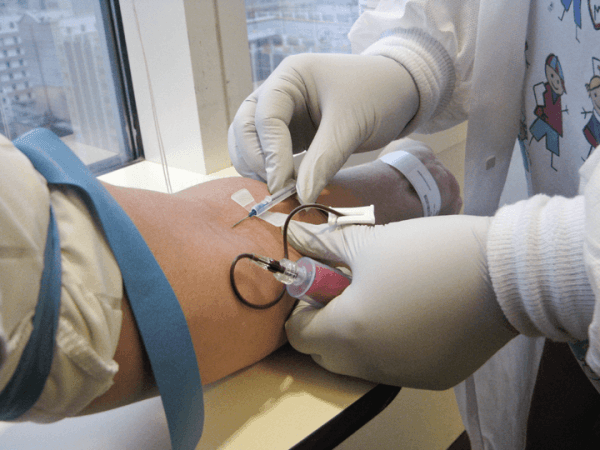Diagnostic test for secondary adrenocortical insufficiency results from inadequate secretion of adrenocorticotropic hormone (ACTH) by the pituitary gland, leading to reduced cortisol production. A precise diagnosis is essential for effective treatment and management. Below, we detail the primary diagnostic tests used to evaluate this condition.

1. ACTH Stimulation Test
Overview
The ACTH stimulation test assesses the adrenal glands’ ability to produce cortisol in response to exogenous ACTH administration.
Procedure
- A baseline blood sample is taken to measure cortisol levels.
- Synthetic ACTH (cosyntropin) is administered intravenously or intramuscularly.
- Blood samples are collected at 30 and 60 minutes post-injection to evaluate cortisol response.
Interpretation
- A normal cortisol increase suggests adequate adrenal function.
- In secondary adrenal insufficiency, the adrenal response may be normal if the condition is recent or blunted in chronic cases due to adrenal atrophy.
2. Insulin Tolerance Test (ITT)
Overview
The ITT is the gold standard for assessing the hypothalamic-pituitary-adrenal (HPA) axis, evaluating cortisol and ACTH responses to induced hypoglycemia.
Procedure
- Insulin is administered intravenously to lower blood glucose below 2.2 mmol/L.
- Blood samples are collected at baseline and at multiple time points to measure cortisol and glucose levels.
Interpretation
- A significant rise in cortisol indicates normal HPA axis function.
- In secondary adrenal insufficiency, the cortisol response is inadequate due to impaired ACTH secretion.
Considerations
- The ITT carries risks, including severe hypoglycemia.
- Contraindicated in individuals with cardiovascular disease or seizure disorders.
- Requires close medical supervision.
3. CRH Stimulation Test
Overview
The corticotropin-releasing hormone (CRH) stimulation test differentiates secondary (pituitary) from tertiary (hypothalamic) adrenal insufficiency.
Procedure
- Synthetic CRH is administered intravenously.
- Blood samples are taken at baseline and at intervals to measure ACTH and cortisol levels.
Interpretation
- In secondary adrenal insufficiency, the pituitary response to CRH is diminished, leading to low ACTH and cortisol.
- In tertiary adrenal insufficiency, a delayed ACTH response may be observed.
4. Metyrapone Test
Overview
The metyrapone test evaluates the HPA axis by inhibiting cortisol synthesis, which should trigger an increase in ACTH and cortisol precursors.
Procedure
- Metyrapone is administered at midnight.
- Blood is drawn the following morning to measure 11-deoxycortisol and cortisol levels.
Interpretation
- A normal response involves increased ACTH and 11-deoxycortisol.
- In secondary adrenal insufficiency, ACTH secretion remains blunted, leading to low 11-deoxycortisol levels.
Considerations
- Less commonly used due to potential side effects and availability of alternative tests.
5. Baseline Hormonal Assessments
Overview
Early morning cortisol and plasma ACTH measurements provide an initial assessment of adrenal function.
Procedure
- Blood samples are collected in the early morning to measure cortisol and ACTH levels.
Interpretation
- Low cortisol with low or inappropriately normal ACTH suggests secondary adrenal insufficiency.
- Additional dynamic testing may be required for confirmation.